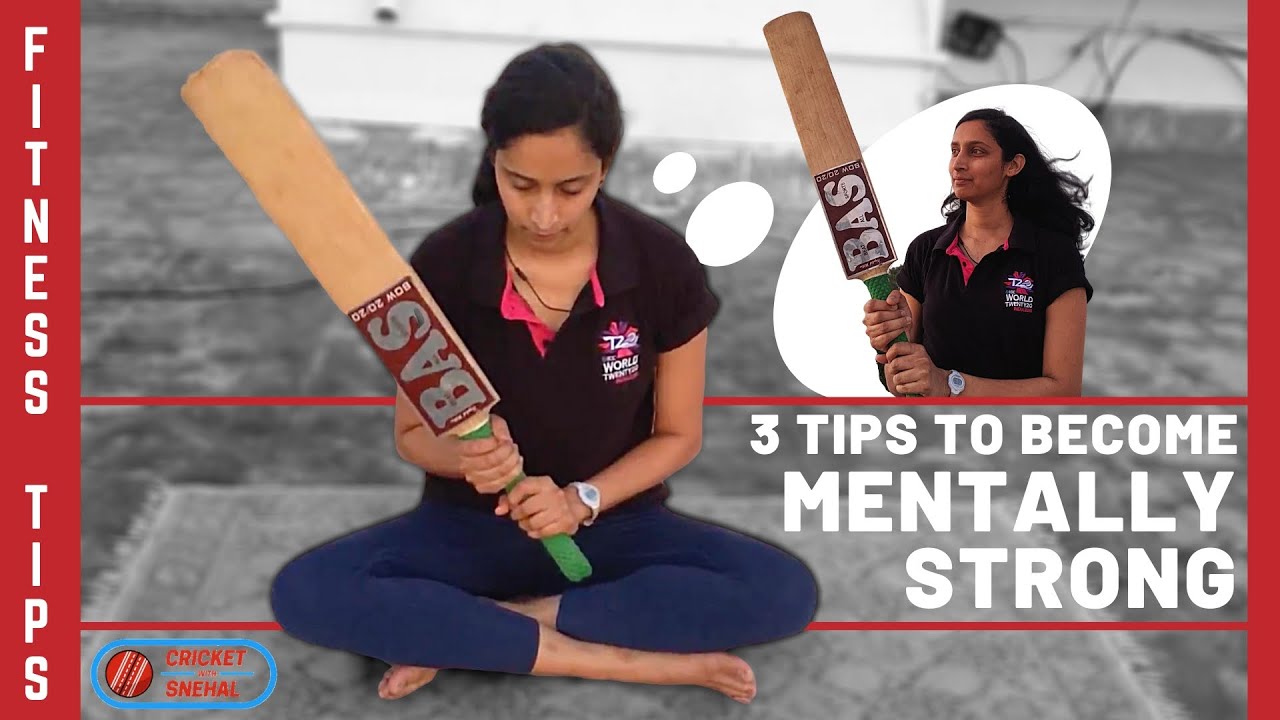Introduction
Welcome to our guide on improving your cricket mental game. While physical skills are vital in cricket, the mental aspect plays a significant role in achieving success on the field. In this blog post, we will explore various strategies and techniques that can help you enhance your mental toughness, boost confidence, and perform at your best under pressure.
Understanding the Importance of Mental Toughness
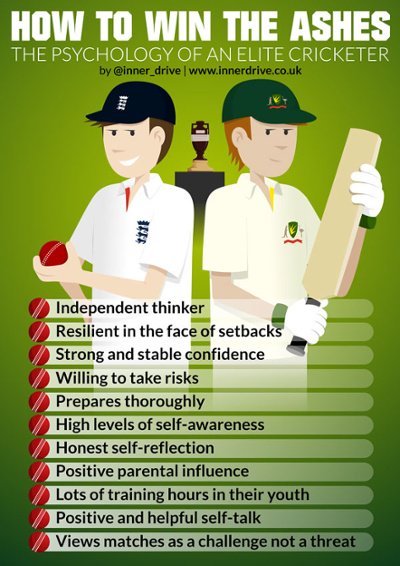
In the world of cricket, mental toughness is often the differentiating factor between a good player and a great one. It’s the ability to stay focused, composed, and confident, even in the most challenging situations. Here’s why mental toughness is crucial for cricket players:
- Pressure Handling: Cricket is a sport that comes with immense pressure, whether you’re facing a hostile fast bowler or trying to chase down a steep target. Mental toughness allows you to thrive under pressure and make smart decisions.
- Consistency: Consistency is key in cricket. Players with strong mental toughness can maintain their performance levels over an entire season or tournament, reducing the impact of performance dips.
- Confidence Building: A resilient mindset helps in building and maintaining self-confidence. This confidence can make all the difference when stepping onto the field.
- Adaptability: Cricket often throws unexpected challenges, such as changing weather conditions or tricky pitches. Mental toughness enables players to adapt swiftly and effectively.
Furthermore, mental toughness isn’t just about handling adversity; it’s also about staying focused during successful periods. It prevents complacency and helps you continue improving your skills.
Here’s a simple table summarizing the key aspects of mental toughness in cricket:
| Aspect | Definition |
|---|---|
| Pressure Handling | The ability to perform well under intense pressure and high-stakes situations. |
| Consistency | Maintaining a high level of performance over a sustained period, minimizing fluctuations. |
| Confidence Building | Boosting and maintaining self-assurance in one’s abilities as a player. |
| Adaptability | Being able to adjust to changing circumstances and conditions on the field. |
Mental toughness is a skill that can be developed and refined through practice and mental conditioning exercises. In the following sections, we’ll delve deeper into specific strategies and techniques to help you improve your mental game in cricket.
1. Self-Awareness in Cricket

Self-awareness is the foundation of mental toughness in cricket. It involves understanding your own strengths, weaknesses, and emotional triggers while playing the game. Here’s why self-awareness is crucial and how it can be developed:
- Identifying Weaknesses: To improve, you must first recognize your shortcomings. This could be technical weaknesses like a particular shot you struggle with or mental challenges like anxiety before big matches. Self-awareness allows you to pinpoint areas for improvement.
- Playing to Your Strengths: Every player has unique strengths. Some excel in aggressive batting, while others are brilliant bowlers. Being aware of your strengths enables you to make the most of them and contribute effectively to your team’s success.
- Managing Emotions: Cricket can be an emotionally charged game. Self-awareness helps you identify how you react to various situations. For instance, knowing that you tend to get frustrated when the game isn’t going your way allows you to work on staying calm and focused.
One effective way to develop self-awareness is by keeping a cricket journal. In this journal, you can record your performances, noting both the technical aspects and the emotions you experienced during a game. Over time, you’ll start to see patterns and areas where improvement is needed.
Here’s a simple table highlighting the benefits of self-awareness in cricket:
| Benefits of Self-Awareness |
|---|
| Identifying Weaknesses |
| Playing to Your Strengths |
| Managing Emotions |
Additionally, working with a coach or sports psychologist can provide valuable insights into your strengths and areas for growth. They can help you develop a personalized plan for enhancing your self-awareness and, subsequently, your overall mental game in cricket.
Self-awareness is the cornerstone of mental toughness. By understanding yourself better as a cricketer, you can make informed decisions, set realistic goals, and continually strive for improvement.
2. Building Confidence

Confidence is a critical component of mental toughness in cricket. It’s the belief in your ability to perform well under various circumstances. Building and maintaining confidence can significantly impact your performance on the cricket field. Here’s how you can work on it:
- Positive Self-Talk: Your inner dialogue plays a crucial role in shaping your confidence. Replace self-doubt and negative thoughts with positive affirmations. Remind yourself of your past successes and focus on your strengths.
- Visualization: Visualization is a powerful tool for building confidence. Imagine yourself succeeding in different cricket scenarios – hitting a winning run, taking a crucial wicket, or making an exceptional catch. This mental imagery can boost your self-belief.
- Goal Setting: Set achievable goals and celebrate your accomplishments, no matter how small. Meeting your goals reinforces your confidence and motivates you to aim higher.
Here’s a table summarizing the strategies for building confidence:
| Confidence-Building Strategies |
|---|
| Positive Self-Talk |
| Visualization |
| Goal Setting |
It’s important to remember that confidence is not something that can be built overnight. It requires consistent effort and practice. Additionally, learning from failures and setbacks is part of the process. Don’t let failures dent your confidence; instead, use them as opportunities for growth.
Working with a sports psychologist or mental coach can be invaluable in building and maintaining confidence. They can provide tailored techniques and exercises to enhance your self-belief and mental resilience.
Confidence is the bedrock of mental toughness in cricket. When you believe in yourself and your abilities, you can perform at your best even in high-pressure situations. Keep nurturing your confidence, and it will become a potent weapon in your cricket arsenal.
3. Managing Pressure
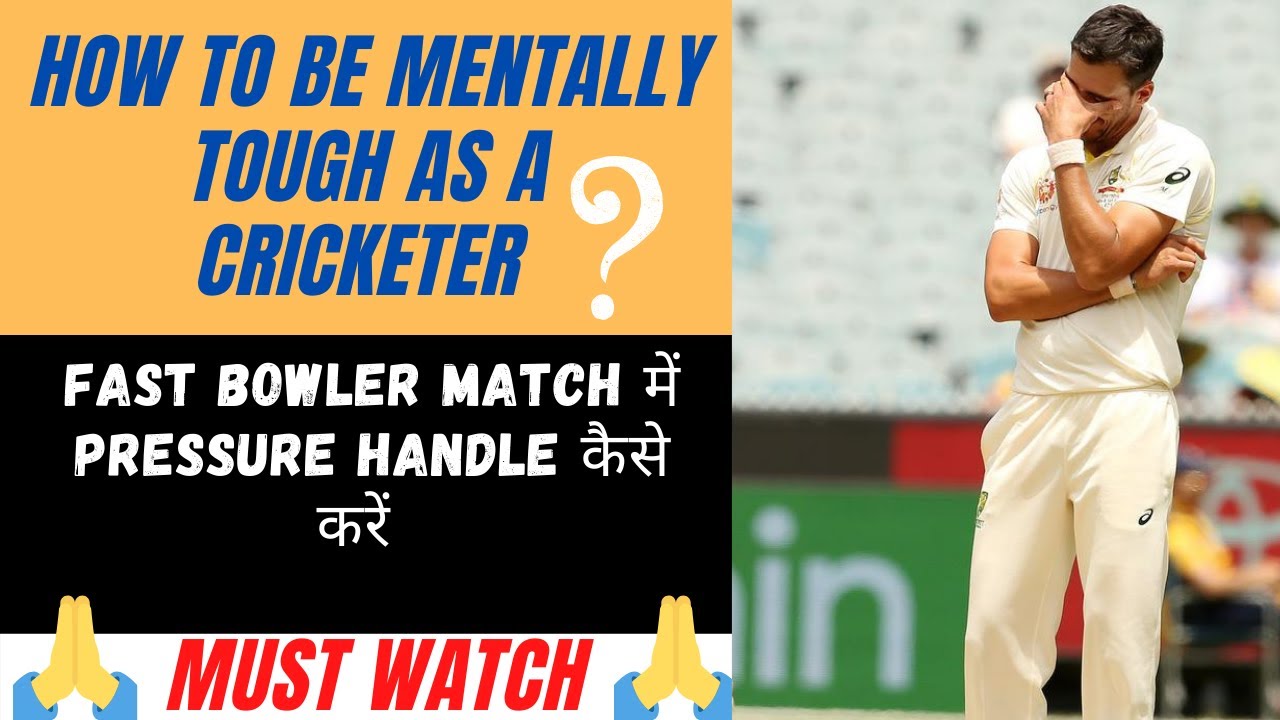
Pressure is an inherent part of cricket, and how you handle it can make or break your performance. Effective pressure management is a key aspect of mental toughness in this sport. Here’s how you can learn to manage pressure on the field:
- Breathing Techniques: Controlled breathing can help calm your nerves during high-pressure situations. Practice deep, slow breaths to maintain focus and composure.
- Positive Mindset: Cultivate a positive mindset by focusing on the present moment and your controllable actions. Avoid dwelling on potential negative outcomes.
- Preparation: Thorough preparation can reduce anxiety. Know your game plan, study the opposition, and practice various scenarios to boost your confidence in your abilities.
- Routine: Establish a pre-game routine that helps you stay calm and centered. Whether it’s a specific warm-up or a mental ritual, routines can provide comfort and stability under pressure.
Here’s a table summarizing pressure management strategies:
| Pressure Management Strategies |
|---|
| Breathing Techniques |
| Positive Mindset |
| Preparation |
| Routine |
It’s important to acknowledge that pressure is a normal part of competitive cricket. Instead of trying to eliminate it, focus on using it as a source of motivation and challenge. Embrace pressure as an opportunity to prove your mental toughness.
Additionally, learning from your experiences is vital in pressure management. Reflect on past high-pressure situations, both successes and failures, and use them as lessons to improve your future performances.
Lastly, don’t hesitate to seek guidance from experienced coaches or sports psychologists. They can provide personalized strategies to help you handle pressure effectively and perform at your best when it matters most.
Mastering pressure management is a crucial skill in cricket. With practice and the right mindset, you can turn pressure situations into your advantage and become a mentally tough player.
4. Focus and Concentration
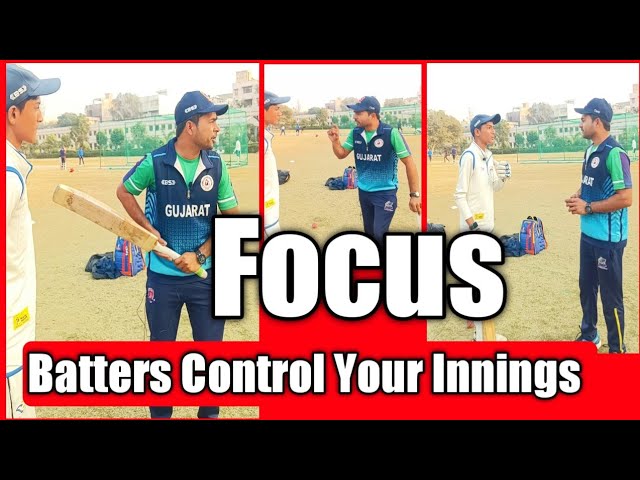
Focused attention and concentration are essential elements of a strong mental game in cricket. They enable you to stay in the moment, make quick decisions, and execute your skills effectively. Here’s how you can improve your focus and concentration on the cricket field:
- Mindfulness Training: Mindfulness techniques, such as meditation and deep breathing exercises, can help enhance your ability to stay present and focused. Regular practice can improve your concentration over time.
- Goal-Oriented Thinking: Set clear and specific goals for each game or practice session. Having a target to aim for keeps your mind engaged and focused on the task at hand.
- Eliminate Distractions: Identify and minimize distractions during games. This includes avoiding unnecessary conversations, staying off your phone, and maintaining a laser-like focus on the game’s dynamics.
Here’s a table summarizing strategies for improving focus and concentration:
| Focus and Concentration Strategies |
|---|
| Mindfulness Training |
| Goal-Oriented Thinking |
| Eliminate Distractions |
It’s important to recognize that maintaining focus and concentration is a skill that can be developed through consistent practice. When you train your mind to stay on task, you become less prone to errors and more likely to perform at your peak.
During matches, try to stay in the “flow state” where your mind is fully engaged in the game, and distractions fade away. This requires practice and mental discipline, but it can lead to exceptional performances.
Working with a sports psychologist or mental coach can also provide personalized techniques and exercises to improve your focus and concentration. They can help you identify specific challenges and develop strategies to overcome them.
Remember that focus and concentration are not only important during matches but also in practice sessions. Consistent attention to detail in practice translates into better performance when it matters most.
By mastering focus and concentration, you can elevate your cricketing abilities and become a more mentally resilient player, capable of making crucial contributions to your team.
5. Handling Setbacks

Setbacks are an inevitable part of cricket, and how you respond to them can define your mental toughness. Handling setbacks effectively is crucial for sustained success in the game. Here’s how you can bounce back from setbacks:
- Resilience: Develop resilience by understanding that setbacks are a natural part of the game. They provide valuable learning experiences and opportunities for growth.
- Positive Self-Talk: Maintain a positive attitude even when facing adversity. Remind yourself that setbacks are temporary, and you have the ability to overcome them with hard work and determination.
- Review and Learn: After a setback, take time to reflect on what went wrong. Analyze your performance objectively and identify areas for improvement. This self-assessment can lead to positive changes in your game.
- Set New Goals: Adjust your goals in response to setbacks. This can help you stay motivated and focused on the future, rather than dwelling on past failures.
Here’s a table summarizing strategies for handling setbacks:
| Handling Setbacks Strategies |
|---|
| Resilience |
| Positive Self-Talk |
| Review and Learn |
| Set New Goals |
It’s important to note that setbacks in cricket can come in various forms – a poor performance in a match, an injury, or even rejection from a team. Regardless of the nature of the setback, maintaining mental resilience is key.
Moreover, setbacks can provide an opportunity to work on mental conditioning. By developing mental strength, you can not only recover from setbacks but also thrive under pressure and adversity.
Seeking support from a sports psychologist or mental coach can be highly beneficial when dealing with setbacks. They can provide guidance on handling the emotional impact of setbacks and developing a mindset that thrives on challenges.
In conclusion, setbacks are a natural part of a cricketer’s journey. Your ability to handle setbacks with resilience, positive self-talk, self-reflection, and adjusted goals will play a significant role in your long-term success in the game.
6. Visualization Techniques

Visualization is a powerful mental tool that can greatly enhance your performance in cricket. It involves creating vivid mental images of successful actions and outcomes. By practicing visualization techniques, you can improve your confidence, focus, and overall mental game. Here’s how to harness the power of visualization:
- Visualization Preparation: Find a quiet, distraction-free space to practice. Close your eyes and take a few deep breaths to relax. Clear your mind of distractions.
- Create a Clear Image: Visualize a specific cricket scenario, such as facing a bowler or taking a crucial catch. Imagine it in as much detail as possible – the field, the sounds, the weather, and your own actions.
- Engage All Senses: Make your visualization as vivid as possible by engaging all your senses. Feel the weight of the bat in your hands, hear the sound of the ball hitting the bat, and sense the adrenaline rush as you execute the perfect shot.
- Positive Outcomes: Visualize success. Imagine yourself performing flawlessly, hitting boundaries, taking wickets, and contributing to your team’s victory. The more positive and realistic your mental imagery, the more effective it becomes.
Here’s a table summarizing visualization techniques:
| Visualization Techniques |
|---|
| Visualization Preparation |
| Create a Clear Image |
| Engage All Senses |
| Positive Outcomes |
Visualization is not just a mental exercise; it has a physical impact as well. When you consistently visualize success, your brain begins to perceive it as a real possibility. This boosts your confidence and helps you perform more effectively when you’re actually on the field.
Top cricketers often use visualization as part of their pre-game routines. They mentally rehearse their shots, fielding actions, and even strategies for dealing with challenging situations. This mental rehearsal can lead to improved decision-making and execution during matches.
It’s important to practice visualization regularly to reap its full benefits. Dedicate time each day to visualize different aspects of your cricketing performance. Over time, you’ll notice an increase in your confidence, focus, and overall mental toughness.
Visualization techniques can be a game-changer for your cricketing career. By incorporating them into your training routine, you can sharpen your mental skills and enhance your on-field performance.
7. Pre-Game Mental Preparation
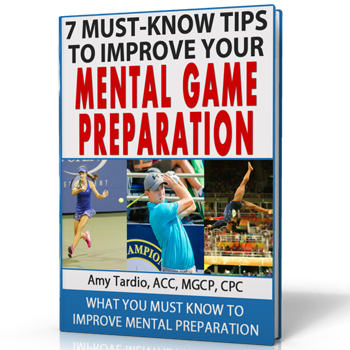
Effective pre-game mental preparation is the key to entering a cricket match with confidence and focus. It’s during this phase that you set the tone for your performance. Here’s how to prepare mentally before a game:
- Visualization: As discussed earlier, visualization can be a powerful tool. Spend time visualizing various aspects of your game, including your batting or bowling technique, fielding skills, and even your reactions to specific situations.
- Positive Affirmations: Use positive self-talk to boost your confidence. Remind yourself of your skills and past successes. Phrases like “I am ready,” “I am in control,” and “I trust my abilities” can be impactful.
- Routine: Establish a pre-game routine that helps you get into the right mindset. This routine could include physical warm-up exercises, mental relaxation techniques, and a specific sequence of actions to focus your mind.
- Focus on Process, Not Outcome: Instead of fixating on winning or the end result, concentrate on the process. Think about the specific tasks you need to execute during the game, such as playing each ball on its merit or delivering accurate deliveries as a bowler.
Here’s a table summarizing pre-game mental preparation techniques:
| Pre-Game Mental Preparation Techniques |
|---|
| Visualization |
| Positive Affirmations |
| Routine |
| Focus on Process, Not Outcome |
Maintaining a calm and focused demeanor is essential during the pre-game period. Avoid unnecessary distractions, and stay engaged in your mental preparation. Surround yourself with supportive teammates who share your dedication to mental readiness.
Lastly, remember that pre-game mental preparation is a personal process. What works for one player may not work for another. Experiment with different techniques and routines to discover what helps you get in the zone before a game.
By investing time and effort in pre-game mental preparation, you can enhance your mental toughness, boost your confidence, and improve your overall performance on the cricket field. A strong mental foundation can often be the difference between success and underperformance in cricket.
FAQ
Here are some frequently asked questions about improving your cricket mental game:
Q1: Can mental toughness really make a difference in cricket?
A1: Absolutely. Mental toughness can significantly impact your performance in cricket. It helps you stay composed, make better decisions, and handle pressure effectively.
Q2: How can I work on my mental toughness?
A2: You can work on your mental toughness through various strategies, including self-awareness, visualization, positive self-talk, and resilience-building exercises.
Q3: Is it necessary to work with a sports psychologist?
A3: While not mandatory, working with a sports psychologist or mental coach can provide valuable guidance and personalized techniques to enhance your mental game.
Q4: Can visualization really help in cricket?
A4: Yes, visualization is a proven technique used by many successful cricketers. It can boost confidence, improve focus, and enhance performance when used consistently.
Q5: How can I stay calm under pressure during a match?
A5: Managing pressure involves techniques like controlled breathing, positive mindset, preparation, and routines. These can help you stay composed when the stakes are high.
Q6: What should I do after a setback or failure?
A6: After a setback, practice resilience, engage in positive self-talk, review and learn from the experience, and set new goals to regain your confidence and motivation.
Q7: Can pre-game mental preparation improve my performance?
A7: Yes, pre-game mental preparation is crucial for entering a match with confidence and focus. It sets the stage for a successful performance by enhancing your mental readiness.
Feel free to explore these questions further to enhance your understanding of cricket mental toughness.
Conclusion
In conclusion, enhancing your cricket mental game is an integral part of becoming a successful and resilient cricketer. Mental toughness can make the difference between a good player and a great one, allowing you to perform consistently under pressure, bounce back from setbacks, and maintain unwavering confidence.
Throughout this guide, we’ve explored various aspects of cricket mental toughness, including self-awareness, confidence building, pressure management, focus and concentration, handling setbacks, visualization techniques, and pre-game mental preparation. By implementing these strategies and techniques into your training and game-day routines, you can develop the mental resilience needed to excel in cricket.
Remember that mental toughness, like any skill, requires practice and dedication. Regularly working on your mental game can lead to remarkable improvements in your performance, both on and off the field.
Additionally, seeking guidance from experienced coaches, sports psychologists, or mental coaches can provide valuable insights and personalized strategies to further enhance your mental toughness in cricket.
As you continue your cricket journey, keep in mind that mental strength is an ongoing process. Embrace challenges and setbacks as opportunities for growth, maintain a positive mindset, and stay committed to developing your mental game. With time and effort, you can reach new heights in your cricketing career and achieve your goals.
Thank you for joining us on this journey to improve your cricket mental game. Best of luck in your future cricket endeavors!
